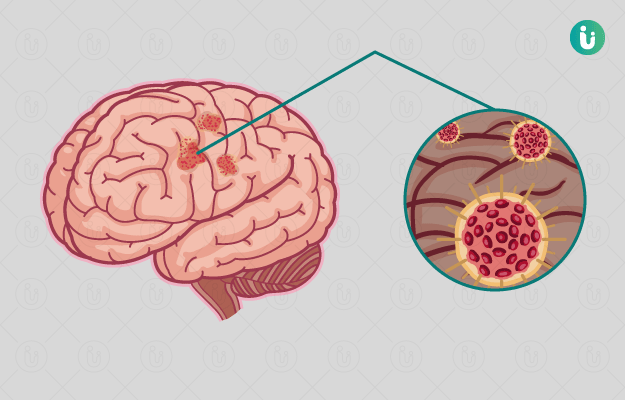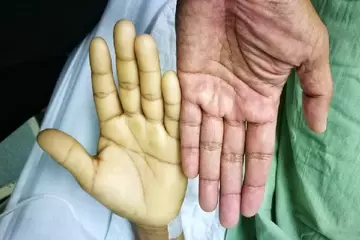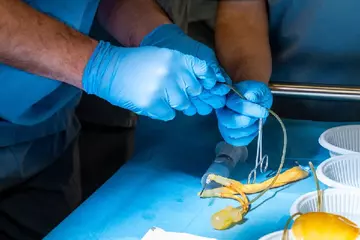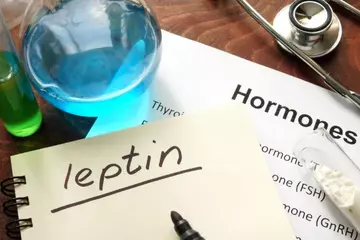What is Encephalitis?
Encephalitis is a condition characterised by irritation, swelling or inflammation of the brain. It leads to deterioration of the brain and spinal cord function, manifesting in the form of confusion, hallucinations and seizures. Usually, the disease is mild in nature, but severe cases may occur. The latter has high morbidity and mortality rates.
This condition is more prevalent among infants, toddlers, younger children, aged people and immunocompromised patients, however, anyone can develop encephalitis at any stage of their life.
How does Encephalitis spread?
Encephalitis can be of viral or bacterial origin. However, viral encephalitis is more common in the general population.
It can occur due to a primary infection, that is, when the virus directly attacks brain tissues or as a secondary manifestation of infection occurring somewhere else in the body.
Rabies and Herpes simplex infections and viral diseases like measles, mumps, chickenpox or rubella are usually associated with encephalitis as a secondary manifestation. This type of encephalitis is also known as post-infection encephalitis.
Development of vaccines against these viral diseases has significantly reduced the cases of post-infectious encephalitis.
Signs and symptoms of Encephalitis
Once the virus enters the body, encephalitis symptoms appear within a few days or they may take as long as one or two weeks to manifest. The most common symptoms seen in cases of encephalitis are as follows:
- Severe Headache
- Fever
- Sensitivity to light
- Drowsiness
- Lethargy
- Nausea and Vomiting
- Increased irritability
- Skin Rashes
- Seizures
- Difficulty in talking
- Change in speech
- Change in alertness
- Mental confusion
- Hallucination
- Loss of appetite
- Unsteady gait
- Stiff neck
- Stiffness in back
Infants and toddlers may show additional symptoms like:
- Constant crying
- Poor feeding
- Bulging in soft spots of the skull
Severe cases of Encephalitis may manifest in the form of:
- Loss of muscle strength in arms and legs
- Double vision
- Impaired speech
- Impaired hearing
- Coma
Encephalitis symptoms are often confused with other medical conditions, thereby consultation of doctor for early diagnosis and treatment becomes very crucial.
Diagnosis for Encephalitis
To make a definitive diagnosis of encephalitis, a detailed patient history is taken, which includes the history of mosquitoes or ticks bites, immunization history and recent history of cold, flu, respiratory illness or gastrointestinal issues accompanied by few diagnostic tests like:
- Magnetic resonance imaging (MRI): MRI is performed to look for soft tissue changes in the brain like oedema, haemorrhage and lesions.
- Computed tomography scan (CT Scan): It is done to see the structural and bony changes in brain tissues like lesions. (Read more: CT scan procedure)
- Spinal tap or lumbar puncture: This test helps elicit and relieve the elevated cerebrospinal fluid pressure in the spinal cord and brain. Evaluation of cerebrospinal fluid also reveals its protein and glucose levels.
- Blood tests: Blood tests are done to check leukocytosis (increased leukocytes count) and hyponatremia (reduced sodium level).
- Electroencephalogram (EEG): EEG reveals brain function through recorded electrical activity. It is done with the help of electrodes placed on the scalp.
- Sputum test: Sputum culture is done to establish the presence of infection. A sample of sputum is taken by making the patient cough.
Treatment of Encephalitis
Early detection and prompt action play a crucial role in the treatment of encephalitis.
Soon as the condition is detected, immediate hospitalization, adequate supportive care and close monitoring of brain and body functions are needed to keep the condition from worsening.
While treating a patient for encephalitis, the focus should be on treating the cause, reducing brain swelling and to eliminate other related symptoms.
Oral or intravenous medications may be prescribed for symptoms like fever, seizure, infection and vomiting.
In severe cases of encephalitis, the patient may have breathing difficulties. Assistance with breathing machine or ventilator might reduce this discomfort.
Once, the patients start to recover, supportive therapies may be given to help them regain their cognitive functions, physical stamina, speech and awareness.
As there is no specific treatment for encephalitis, prevention of this condition is crucial.
This can be done by controlling vector (mosquitoes and ticks) population in endemic areas and taking necessary steps to avoid mosquito and tick bites. (Read more: Ways to prevent mosquito bites)
Vaccination against severe viral infection like measles and mumps should also be done at the recommended age and interval.

 Doctors for Encephalitis
Doctors for Encephalitis  Encephalitis articles
Encephalitis articles








 Editorial Team
Editorial Team

 Dr. Sushma Sharma
Dr. Sushma Sharma











